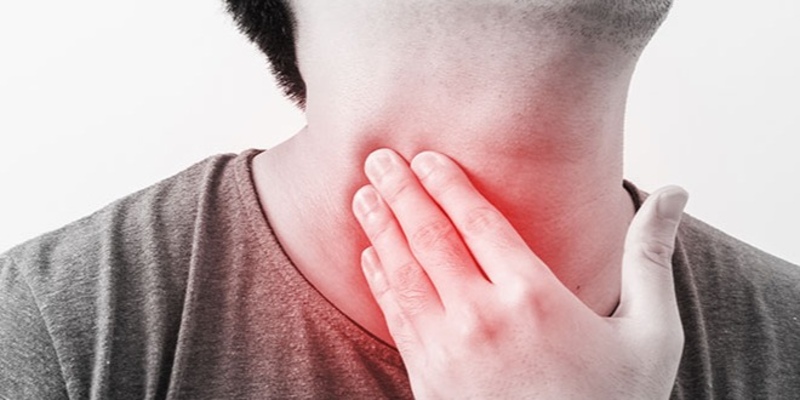What is Skin Cancer and What Causes It?
Oct 19, 2023 By Madison Evans
We all know that skin cancer is a serious health threat, but many of us don’t know the warning signs. The unfortunate truth is that skin cancer can be difficult to detect, as its symptoms often appear to be harmless or even go unnoticed at first. Knowing and watching out for these 7 warning signs could save your life as catching skin cancer early makes it more treatable and potentially saves you from having any lasting effects from the disease. Let's take a look at what those 7 warning signs of skin cancer are and how they manifest on the body - stay informed and stay safe!
Discuss the 7 warning signs of skin cancer :
1. Change in size, shape, or color of a mole:
This is the most common sign of skin cancer and when it occurs, you should be especially vigilant about getting it checked out by a doctor. Pay attention to any moles that have started to become bigger in size, change shape (from round to oval) or had a drastic color change.
2. New moles:
It’s normal to have a few moles on your skin, but any new moles that appear suddenly should be monitored closely as it could be an early sign of skin cancer.
3. Open sores that don’t heal:
If you have an open sore or area of skin that won’t heal properly, this could be a sign of early stages of skin cancer.
4. Itching or pain:
If you experience any persistent itching or pain in an area on your body then it could mean something is wrong and should be looked into further by a doctor.
5. Raised areas of skin:
If you notice any raised bumps or patches of skin, this could be another sign that something is not quite right.
6. Scaliness, crusting, oozing:
Skin cancer can often cause the area to become scaly, crusty and/or ooze. This is a sign that should not be ignored.
7. Bleeding:
If you notice any bleeding that’s out of the ordinary, it’s important to get this checked out by a doctor as soon as possible.
It's important to take these 7 warning signs seriously and contact your doctor immediately if you experience any of them. Early detection is essential for successful treatment, so don't hesitate to reach out for help. Skin cancer is a very serious disease and should not be taken lightly - the more you know about it, the better prepared you will be if anything happens. Stay informed and stay safe!
Risk factors associated with skin cancer:

There are numerous risk factors associated with skin cancer, such as
- sun exposure
- age
- genetics
- diet and lifestyle.
Sun exposure is the most common cause of skin cancer and it’s important to protect your skin from UV rays by wearing sunscreen and protective clothing when outdoors. Age is another factor that increases your risk for developing this disease, as the risk increases with age.
Genetics can play a role too, as people who have fair skin and light eyes may be more prone to developing certain types of skin cancer. Diet and lifestyle can also contribute to your risk; those who smoke or drink alcohol heavily are more likely to develop it than those who don’t.
15 Tips from medical professionals on how to protect yourself against developing skin cancer:
1. Wear protective clothing when outdoors, such as long-sleeved shirts, hats and sunglasses.
2. Avoid tanning beds and limit your time in the sun between 10am - 4pm when UV rays are strongest.
3. Use sunscreen with an SPF of 30 or higher whenever you’re outdoors.
4. Check your skin regularly for any changes in size, shape or color of moles or other growths on the skin.
5. See a doctor if you notice any new moles or any open sores that won’t heal.
6. Use lip balm with SPF to protect your lips from the sun.
7. Avoid smoking and limit your alcohol intake as both have been linked to an increased risk of skin cancer.
8. Eat a healthy, balanced diet with plenty of fruits and vegetables to keep your immune system strong.
9. Wear sunglasses that provide 100% UV protection when outdoors.
10. Regularly check any areas of skin that are difficult to see, such as your scalp or the soles of your feet.
11. Take extra care of moles that you already have and watch for any changes in them.
12. Avoid direct sunlight if possible and stay in the shade when outdoors.
13. Wear sunscreen even on cloudy days, as the UV rays can still reach your skin and cause damage.
14. Consider getting regular check-ups with a dermatologist to ensure that any changes in the skin are detected early.
15. Be aware of any family history of skin cancer and take extra care of your skin.
These tips can help you reduce your risk for developing skin cancer, but the most important thing is to be aware of any changes in your skin that could be a warning sign. If you suspect something isn’t right, don’t hesitate to get it checked out by a doctor as soon as possible. Knowledge is power and the more you know about skin cancer, the better prepared you will be if anything ever happens. Stay informed and stay safe!
Stories related to skin cancer:

One of the most striking examples of the dangers of skin cancer comes from the story of Melissa Wannamaker. In 2008, Melissa was diagnosed with melanoma after discovering a mole on her thigh that had changed shape and color. She immediately went to her doctor to have it checked out and, luckily, they were able to catch her diagnosis early and treat her with surgery. Today, Melissa is cancer-free and uses her story to warn others about the importance of paying attention to their skin and understanding the signs of skin cancer. She emphasizes that early detection is key when it comes to this disease - if she hadn’t gotten her mole checked out right away, the outcome could have been drastically different. This is why it’s so important to stay vigilant and always be aware of anything that seems out of the ordinary on your skin.
Conclusion:
Skin cancer is a serious and potentially life-threatening disease. It’s important to be aware of the warning signs and risk factors associated with it, so that you can take action right away if any changes in your skin occur. Protecting yourself from UV exposure and taking other preventive measures can also help reduce your risk for developing this condition. Paying attention to your skin and staying informed about the dangers of skin cancer can go a long way in helping you stay safe and healthy.
FAQs:
Q: What should I do if I think I may have skin cancer?
A: If you think you may have skin cancer, the best thing to do is schedule an appointment with a doctor as soon as possible. Your doctor will examine your skin for any changes and can determine whether or not further tests are needed. It’s important to get any suspicious areas checked out right away in order to receive the proper treatment.
Q: Is skin cancer preventable?
A: Yes, skin cancer is often preventable by taking certain steps to protect yourself from UV exposure. Wearing protective clothing and sunscreen when outdoors, limiting your time in the sun between 10am - 4pm and avoiding tanning beds are all important factors in reducing your risk for developing skin cancer. Eating a healthy diet and avoiding smoking and excessive alcohol consumption can also help lower your chances of getting this disease.







